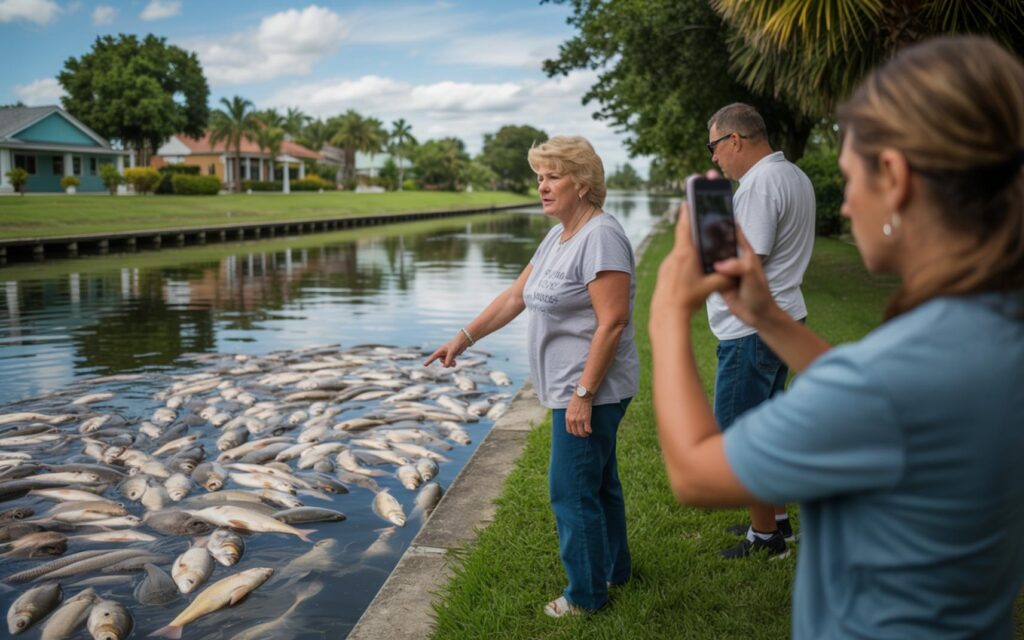Florida has enacted a new law banning fluoride in drinking water, making it the first state to implement such a restriction statewide. The decision, reported by Bloomberg, has significant implications for public health policy across Florida, including communities like Port St. Lucie and the broader St. Lucie County area.
Florida’s Fluoride Ban in Drinking Water: Key Details
The new legislation prohibits the addition of fluoride to public water systems throughout Florida. This law affects all municipalities, including Port St. Lucie, which previously followed federal recommendations for water fluoridation. In response to the statewide mandate, Fort Pierce Utilities has already ended fluoride use in its drinking water, setting a precedent for other local water providers. Fort Pierce residents can learn more about their local utility by visiting Fort Pierce Utilities online.
Supporters of the ban cite concerns about potential health risks and the right of residents to choose their water additives. Opponents, including many dental and public health organizations, argue that fluoride in drinking water has been proven to reduce tooth decay and benefit community dental health.
Impact on Port St. Lucie and St. Lucie County
Port St. Lucie City Government and other cities in St. Lucie County must now comply with the statewide ban. Local water utilities are required to remove fluoride additives from their water treatment processes immediately. In fact, St. Lucie has halted water fluoridation amid rising health concerns, reflecting the growing debate within the community.
This change will affect thousands of residents who have relied on fluoridated water as a preventive dental health measure. Local officials are working to inform the public about the transition and any potential impacts on water quality.
Public Health Perspectives on Fluoride Removal
Fluoride has been added to public water supplies in the United States since the mid-20th century. Centers for Disease Control and Prevention (CDC) and American Dental Association (ADA) have long supported water fluoridation as a safe and effective way to prevent tooth decay.
With the new law in effect, Florida joins a small number of regions worldwide that have opted to remove fluoride from public water. Health experts warn that ending fluoridation could lead to an increase in dental problems, especially among children and older adults. For more information on health regulations and updates in the state, visit the Florida Department of Health.
Arguments for the Fluoride Ban
- Personal choice: Some residents believe individuals should decide whether to consume fluoride.
- Health concerns: Opponents of fluoridation cite studies linking high fluoride exposure to potential health risks, though major health organizations dispute these claims at recommended levels.
- Environmental impact: Some advocates argue that removing fluoride reduces chemical additives in water systems.
Arguments Against the Ban
- Dental health: Supporters of fluoridation point to decades of research showing reduced cavities in communities with fluoridated water.
- Cost savings: Dental experts say water fluoridation saves money by preventing expensive dental treatments.
- Equity: Public health officials worry that low-income families may be most affected by the loss of this preventive measure.
How the New Law Will Be Enforced in Port St. Lucie
City and county water departments in Port St. Lucie have begun the process of removing fluoride from their systems. The law requires immediate compliance, and state agencies will monitor water quality to ensure no fluoride is added moving forward.
Residents may notice changes in their water treatment notices or annual water quality reports. Local health departments are preparing informational materials to address community questions about the change. Meanwhile, other local news, such as the recent incident where a Florida Wing Stop manager threw hot grease and ranch at customers, has also captured public attention, highlighting the range of issues currently facing the region.
Alternatives for Dental Health After Fluoride Ban
With fluoride no longer present in public water, residents of Port St. Lucie and St. Lucie County are encouraged to seek alternative ways to protect their teeth. Dental professionals recommend the following:
- Use fluoride toothpaste and mouth rinses
- Schedule regular dental check-ups and cleanings
- Limit sugary foods and drinks
- Consider fluoride supplements if recommended by a dentist
Community Response in Port St. Lucie
The fluoride ban has sparked debate among Port St. Lucie residents. Some welcome the change as a step toward personal choice, while others worry about the potential impact on children’s dental health. Local officials are hosting public forums to address concerns and provide guidance on maintaining oral health without fluoridated water.
Frequently Asked Questions About Florida’s Fluoride Ban
What is Florida’s new law on fluoride in drinking water?
Florida’s new law bans the addition of fluoride to all public drinking water systems in the state. This means cities like Port St. Lucie can no longer add fluoride to their water supplies.
How much fluoride was previously added to PSL’s water?
Before the ban, Port St. Lucie followed federal guidelines, typically adding about 0.7 milligrams of fluoride per liter of water. This amount was considered optimal for dental health by national health agencies.
Are there other ways to get fluoride in Port St. Lucie now?
Yes, residents can use fluoride toothpaste, mouth rinses, and ask their dentist about supplements. These options can help maintain dental health after the removal of fluoride from public water.
Can you still find fluoridated water in St. Lucie County?
No, the new law applies to all public water systems in St. Lucie County and across Florida. Bottled water with added fluoride may still be available in stores.
Where are active adult communities affected by the fluoride ban?
All retirement communities and 55+ neighborhoods in Port St. Lucie and throughout Florida are affected by the statewide fluoride ban. Residents in these areas will receive non-fluoridated public water.
Get the facts about Port St. Lucie 55+ communities and the latest on the fluoride law— Download our FREE guide .
Port St Lucie Talks

































